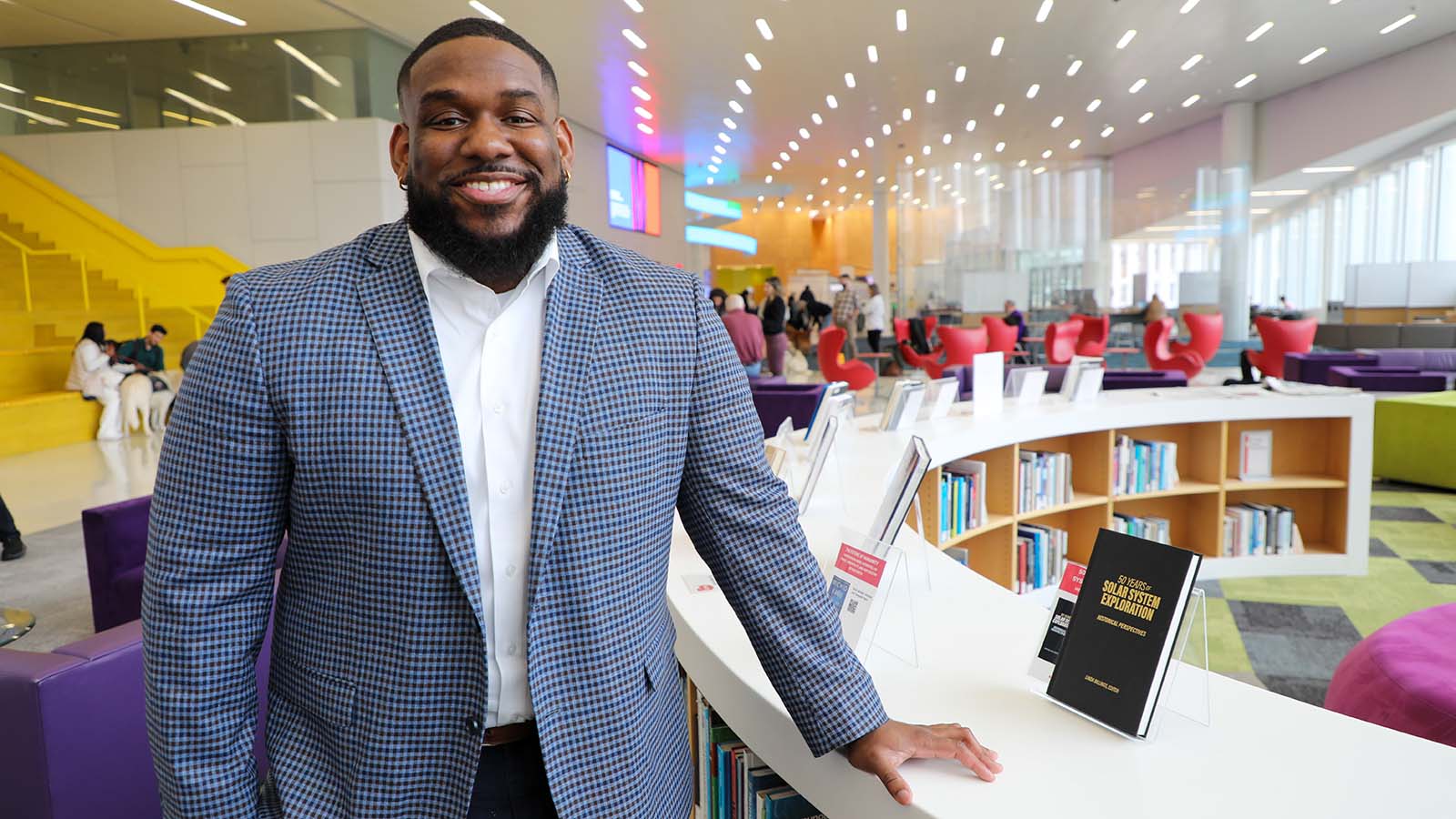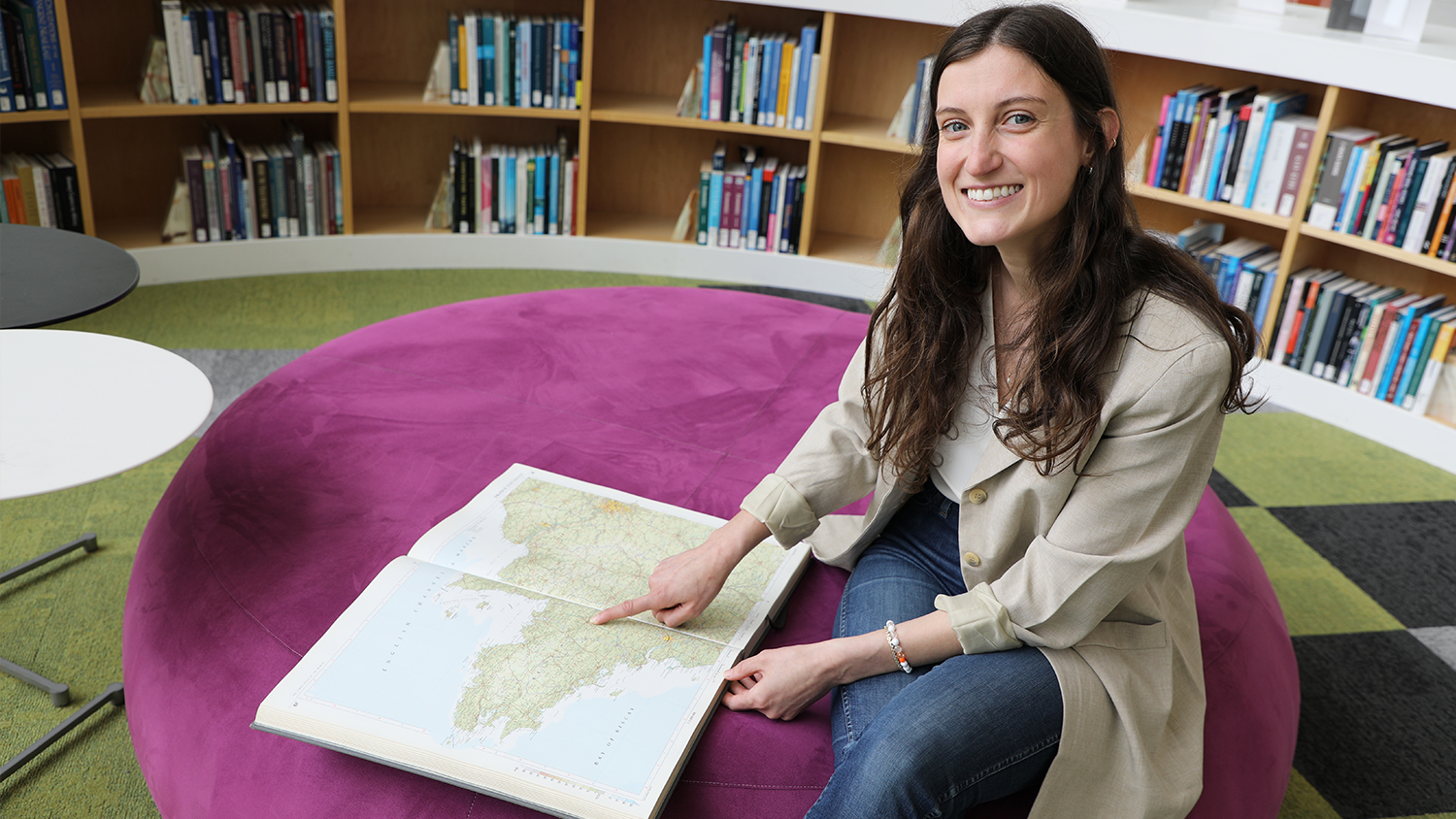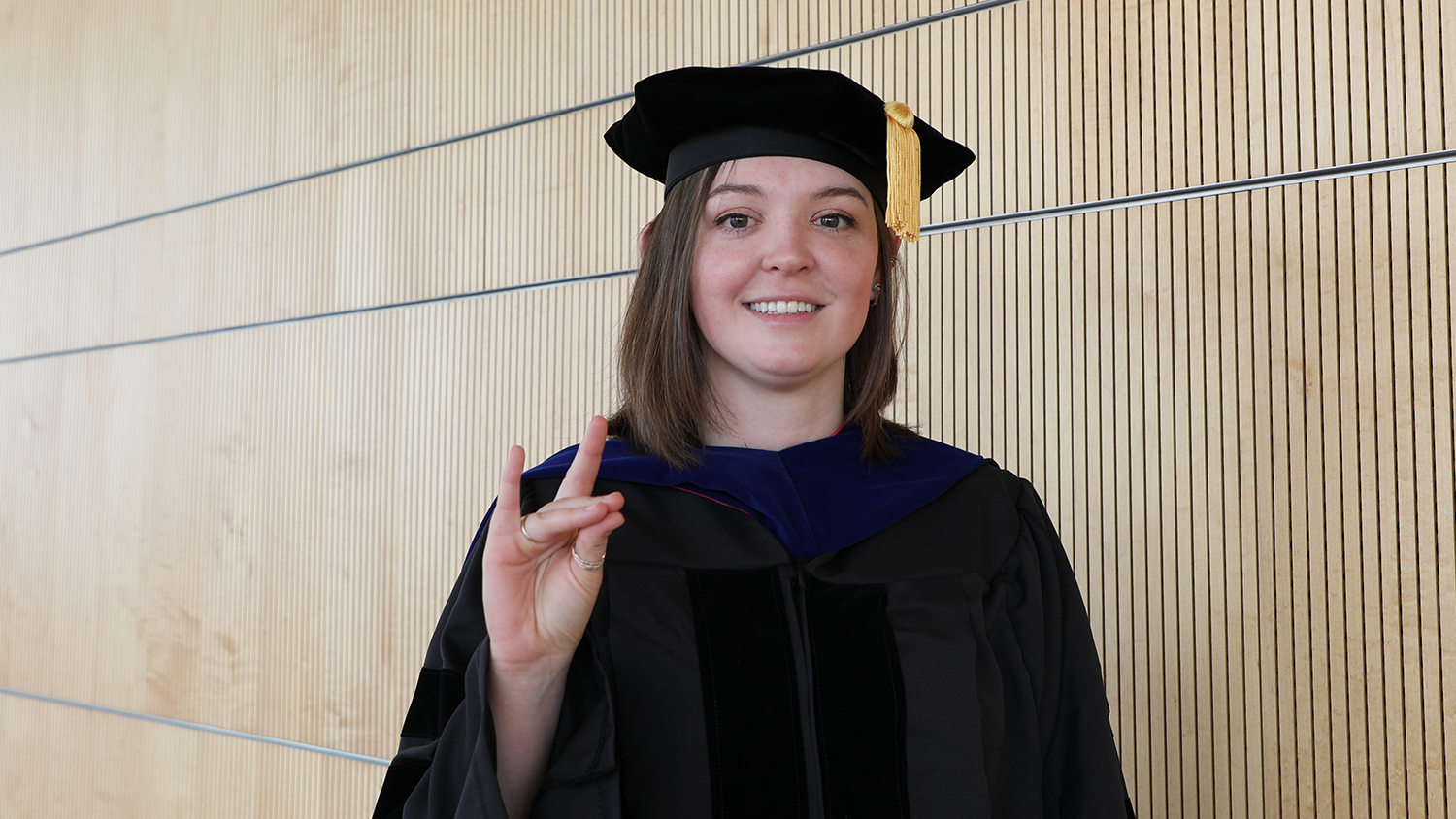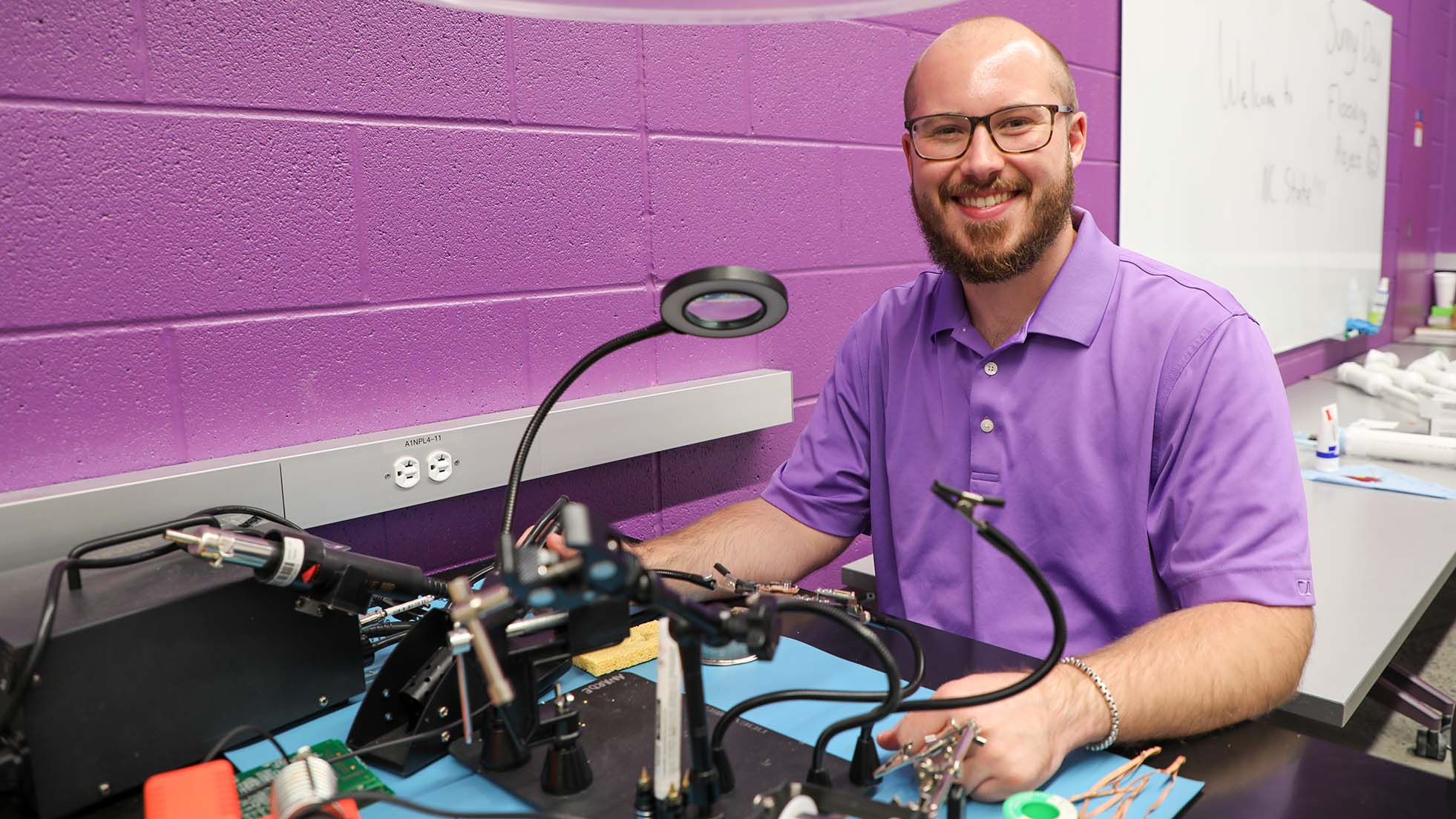Dion Harry is a fourth-year doctoral candidate in Educational Leadership, Policy, and Human Development with a concentration in Higher Education Opportunity, Equity, and Justice. Dion is originally from Lynchburg, SC, and is a proud product of Lee County School District in South Carolina. He is a two-time graduate of Clemson University with a Bachelor of Science in Health Science (Health Promotion and Education) and a Master of Education in Counselor Education (Student Affairs).
Before coming to NC State, Dion served as an admissions counselor (at Piedmont Technical College and Clemson University) and an academic advisor for students majoring in general engineering (at Clemson University). Since being at NC State, Dion has gained additional experience in residential learning, college-level teaching, and research, assessment, and evaluation.
Dion’s research agenda primarily focuses on the well-being of college students from historically excluded communities, with his dissertation topic focusing on the experiences of the well-being of Black queer and trans college students. With his research, Dion desires to help higher education become an environment where these communities feel included, supported, and can thrive at our institutions.
Tell us about your journey to graduate school and what led you to NC State.
I pursued my doctorate because I fell in love with research as a master’s student and knew that was one of the primary ways I wanted to help advance the field of higher education. That said, I knew pursuing this degree would equip me with the knowledge and skills to do quality and innovative work that focused on making higher education more accessible, diverse, and inclusive.
I came to NC State for multiple reasons. For starters, some of my research and professional interests aligned with the work of my advisor and dissertation chair, Dr. Joy Gaston Gayles. In particular, her work focuses on inclusion and equity in higher education, with one of her core focus areas being the experiences of women and people of color in STEM, which is an area I am passionate about. In addition, my program focuses on and encourages research and practice centered on principles of diversity, equity, and inclusion within higher education, which caught my attention as I was looking for programs to support the work I wanted to do. Lastly, I was also intrigued by the possibilities opportunities being in Triangle would bring me from a professional standpoint. Since being here, I’ve connected and partnered with institutions and organizations within the area and across the state.
Tell us about your research and/or teaching experience.
My research focuses on various contexts of postsecondary education and primarily sits within three main areas – the experiences queer and trans people of color, broadening participation in STEM education, and the experiences of students attending community and technical colleges. Since being in my program, I’ve been able to engage in quality research experiences to learn and share knowledge on each of these. For example, I have collaborated with the Department of Biological Sciences to explore students’ sense of belonging and perceptions of their department’s diversity, equity, and inclusion efforts. In addition, I have collaborated with the Belk Center for Community College Leadership and Research to understand how community colleges in NC engage and support adult learners and how community colleges in rural areas of the state advance equity on their campuses. With my dissertation study, I have been able to explore the experiences and well-being of Black queer and trans college students and the ways they experience joy. Other research experiences have included exploring the experiences of Black STEM students at HBCUs, practices that contribute to the success of women and students of color in engineering, the experiences of graduate students of color navigating PWIs, and understanding the ways multicultural student affairs professionals conceptualize and are socialized to do the work they do on campus.
Aside from research, I’ve been afforded opportunities to teach every year I’ve been at NC State. On the undergraduate level, I co-taught a Community Leadership class for first-year students in the Impact Leadership Village. For the Higher Education Administration master’s program, I co-taught the Student Development Theory, Assessment, and Diversity course. For the Higher Education Opportunity, Equity, and Justice, I’ve co-taught the Reflective Practice and Research Inquiry course for our first-year doctoral students. All of these experiences have affirmed my love for teaching and have largely influenced my decision to pursue the professoriate after graduating.
How has the Graduate School and/or NC State helped you with your professional development?
Overall, the College of Education does a great job empowering graduate students to become more involved in conducting and sharing research. Aside from taking methods courses, I have seen our college be intentional about providing us with a plethora of resources, hosting talks and panels about education research, and encouraging us (the students) to share the work that we’re doing within the college and the professional organizations that align with our interests. These experiences have been extremely beneficial to me and have helped me become more confident as a researcher.
In addition, I have also been able to benefit from the dual support of the Graduate School and the Southern Regional Educational Board (SREB) as a Doctoral Scholar. The goal of the Doctoral Scholar Program is to increase the number of students of color who earn doctorates and go on to pursue faculty and other roles related to their field. In addition to financial support, being involved in the SREB at NC State has allowed me to build a community with other doctoral scholars at NC State. Another benefit is the funding support to attend the annual Institute for Teaching and Mentoring, which is curated for doctoral students of color to learn strategies necessary to survive the rigors of graduate school, earn a doctoral degree, and succeed as members in academia or industry. Being in these spaces has allowed me to build my networks and learn about opportunities within academia to promote my professional growth.
What advice do you have for new or current graduate students?
Find time to rest and lean into your joy! The graduate school experience has highs and lows and can take up much of your time. However, you must take care of yourself to be your most effective self! As you balance the demands of grad school, make sure you take moments to rest, recharge, and do the things that bring you the most joy.
What are your plans after graduation?
I have been applying and interviewing for jobs that will give me space to engage in education and equity-related research and teaching. Most of these jobs have been tenure-track assistant professor roles and research roles with different organizations nationwide.
Fun fact about yourself.
I am a big fan of musicals!
- Categories:



